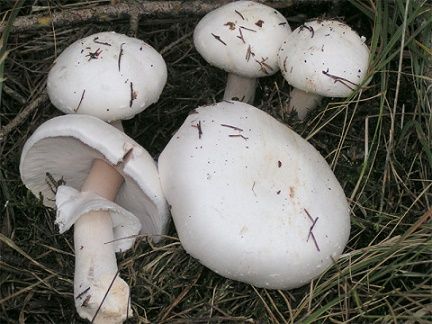Two children have died and nine other members of the same family of 12 from Haslev in southern Zealand remain in a serious condition after an incident in which it is believed they ate poisonous fungi.
Dead on arrival
The two children were already very poorly when the ambulance arrived at the family’s home to take them to hospital, reports Metroxpress.
“It happened extremely suddenly. Both children were alive when the ambulance arrived, but the 15-year-old died soon afterwards. We started resuscitation treatment and then the other child also collapsed and died,” said Doctor Trine Læge.
The other members of the family have been treated at a number of different hospitals with an antidote.
Culprit still unknown
It seems as if the fears expressed by Niels Ebbeshøj, a senior doctor from the toxicology information service Giftlinjen, reported here last week were all too well founded.
It is not known for sure what the family has eaten, but amanita phalloides (the death cap) is a good bet, as it is the Danish toadstool that kills the most people.
Thais living in Denmark are particularly prone to mistaking it for an edible mushroom that they know from back home.
Another possibility could be amanita virosa, also known as the ‘destroying angel’. Jan Kjæargaard from the Danish nature agency, Naturstyrelsen, suggests there are more of them around than usual at the moment.
“They are some of the most toxic fungi we have. They taste good, but are extremely poisonous. Even if you’ve only eaten a little bit, they are deadly,” he said.















